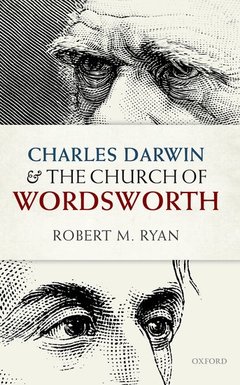Description
Charles Darwin and the Church of Wordsworth
Oxford English Monographs Series
Author: Ryan Robert M.
Language: English
Subject for Charles Darwin and the Church of Wordsworth:
Publication date: 02-2016
218 p. · 13.9x22.3 cm · Hardback
218 p. · 13.9x22.3 cm · Hardback
Description
/li>Biography
/li>
Charles Darwin and the Church of William Wordsworth is a study of the cultural connections between two of the nineteenth century's most influential figures, Charles Darwin and William Wordsworth. When Darwin presented On the Origin of Species, his reading public's affective response to the natural world had already been profoundly influenced by William Wordsworth. Wordsworth presented nature as benign, harmonious, a source of moral inspiration and spiritual blessing, and a medium through which one might enter into communion with the Divine. Long after his death, he continued to be revered throughout the English-speaking world, not only as a great poet, but as a theologian with a broader following than any prelate and an appeal that transcended or ignored sectarian differences. For believers and sceptics alike, Wordsworth's poetry offered a readily accessible and intellectually respectable counterweight to Darwin's vision of a material universe evolving by fixed laws in which Divinity played no discernible role and where concepts like beauty and harmony were material conditions to be explained in scientific terms. Wordsworth's theology of nature became for many readers a more effective counterforce to Darwin's ideas than Biblical orthodoxy, but it also provided an enriching context for the reception of evolutionary theory, aiding theists in their effort to reach an accommodation with the new science. As the nineteenth century's two most prominent theoreticians of nature's life, Wordsworth and Darwin competed for attention among those seeking to understand humanity's relationship with the natural world, and their disciples engaged in a productive, mutually transformative dialogue in which the poet's cultural authority influenced the way Darwin was received, and Darwinian science adjusted interpretation and evaluation of the poetry. Charles Darwin and the Church of William Wordsworth explores the broad cultural relationship between Wordsworth, Darwin, and their disciples, contextualising them within wider discussions about the relationship between religion and science in the nineteenth century.
Robert M. Ryan earned the PhD at Columbia University in New York and served on the faculty of Rutgers University from 1971 to 2006. At Rutgers he received The Warren I. Susman Award and the Charles and Mary Lindback Award for Excellence in Teaching In 2000 he received the Distinguished Scholar Award of the Keats-Shelley Association of America. For his book The Romantic Reformation he received the British Council Prize in the Humanities and the Christianity in Literature Award. He has served on the editorial board of The Wordsworth Circle and the advisory boards of the Keats-Shelley Association of America and the Nineteenth-Century Studies Association.
© 2024 LAVOISIER S.A.S.

